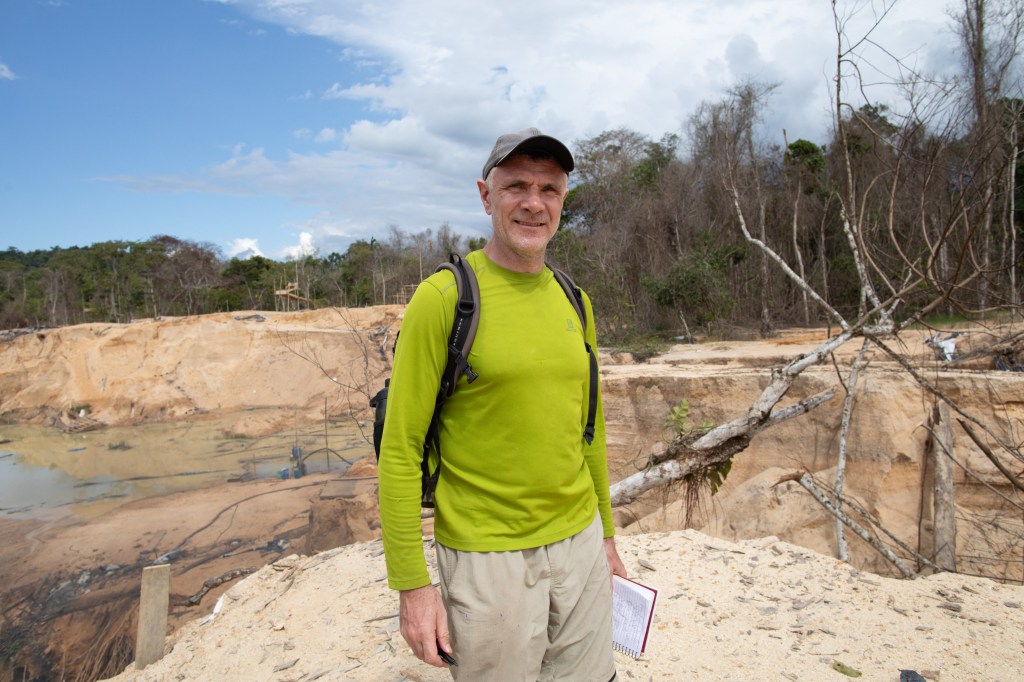Dom Phillips

Journalist Dom Phillips is seen in Roraima state, Brazil, on November 14, 2019. Phillips and indigenous expert Bruno Pereira went missing in the Amazon on June 5, TKTKTK. (Joao Laet/AFP)

Journalist Dom Phillips is seen in Roraima state, Brazil, on November 14, 2019. Phillips and indigenous expert Bruno Pereira went missing in the Amazon on June 5, TKTKTK. (Joao Laet/AFP)